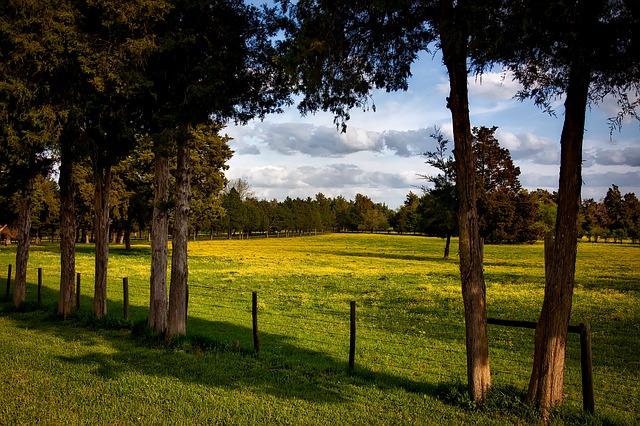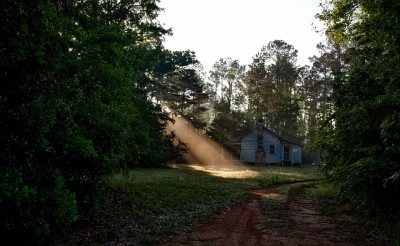The “back-to-the-land” movement continues to grow in America, and if you’re one of those who’ve made the big leap from city to country, or are planning to do so soon, here are a few things you’ll want to remember.
The more knowledgeable and prepared you are, the easier the adjustment will be.
1. Get ready for some big culture shock. Country folks are easygoing people who may come across as peculiar to many city folks. You may not see them hustling, bustling and stressing over things city people normally do. Rural residents view things and do things differently. They may talk to you as if you were a life-long friend.
They’ll be curious why you moved into their area, what your business is, what you and your family are all about. They’re just being friendly and welcoming. They might even go out of their way to say hello and share some fresh produce or canned preserve.
2. Don’t expect to save money from homesteading at first. The initial outlay can come as a big shock. Animals, a barn, fencing, farm equipment … the list goes on and one. You’ll find that no matter how much budgeting and belt-tightening you do, something will always come up that needs building, fixing, adding or improving. Be patient. Developing a homestead is a long, complex process, and it’ll take years before you see some regularity in your spending.
Are You Moving To A New Homestead? Get Off-Grid Electricity Today!
If you break even in your fourth or fifth year, you could consider that an accomplishment. But remember, the returns on your investment won’t all come in the form of money but in intangibles: fresh produce, savings from grocery purchases, bartered stuff (or service) from neighbors. Further rewards can be expected in the long run — better health and hopefully fewer medical bills.
3. Start small and slow. Try to do only one project at a time, at a pace you can handle. Whether it be gardening, poultry raising, carpentry or canning, remember that each skill will take time for you to learn and perfect, and some effort to overcome challenges that come along. It’s easy to get carried away acquiring a couple of more hens, or getting another pair of cute pygmy goats. But be careful not to bite off more than you can chew. (Tip: It’s better to fail in a garden that on livestock. Dying animals can cause a lot of grief, especially if there are kids around.) Then, when you feel comfortable with that first project, feel free to launch into something else.
4. Start low-tech. Don’t buy modern equipment just because you saw an advertisement for it, read some good reviews, or observed your neighbor using it frequently. Start with basic hand tools that are practical and versatile, and work your way from there. You’ll find out soon enough what pieces of motorized equipment you’ll need in your particular set-up, and you’ll be more knowledgeable as to what features to get if you put off that big purchase at a later time. Plus, you won’t have a shed full of expensive machinery that you only used once.
5. Learn to DIY. If you live dozens of miles from the nearest town, or if roads can become impassable due to bad weather, you’ll have to have a well-stocked pantry and medicine chest. Always have essentials on hand, or learn how to make them. Try bottling your own healing oils, tinctures and natural remedies. Learn first-aid treatment and emergency care. Your and your family’s survival could one day depend on it.
Discover More Than 1,100 Homesteading Tips And Tricks!
Likewise, brush up on some handyman skills. Get familiar with the basics of plumbing, electrical, automotive, computer and refrigeration repair. There are lots of practical skills you can learn, and as you acquire them, you’ll be surprised at how fast you’ve become more self-reliant.
6. Expect long, 12-hour workdays. The garden needs to be tended, the goats milked, the muck raked, the produce canned … and so on with many other chores. Of course, there will be slow seasons like fall and winter, but if you have livestock, there will always be animals to feed and milk. Year-round.
7. Learn to deal not only with garden pests but also with wildlife. Snakes, coyotes, foxes, deer, mites and all kinds of critters and predators will be your life-long enemies.
8. Know the local laws. Learn about what and up to how many animals you can keep, what kind of additional structures you can build, and all other pertinent regulations in your local area. You don’t want to run into problems after you’ve built that treehouse in your yard or dug a hole for a pond.
9. Expect setbacks and failures. Despite your best efforts, you’re bound to experience setbacks. Life happens. Crops fail, animals get sick or die, a well or creek dries up. There will be things that just won’t go as you had hoped or planned. But flops are only failures if you don’t recover and learn from them. There’s always a new alternative to try, another variety to grow, another breed to raise … and another time and season to do it all over again. Just learn from your mistakes and move on. Stay positive and don’t quit.
What advice would you add? Share your tips in the section below:
References:
4 Tips for Starting Out Homesteading, https://www.youtube.com/watch?v=W9DCH1lAKoE
My Top 5 Best Tips for the Beginning Homesteader April 2015, https://www.youtube.com/watch?v=APwcBjHprAc
Tips for New Homesteaders, https://www.youtube.com/watch?v=sRX3zP5Ce4c
Discover The Secret To Saving Thousands At The Grocery Store. Read More Here.
 Off The Grid News Better Ideas For Off The Grid Living
Off The Grid News Better Ideas For Off The Grid Living







